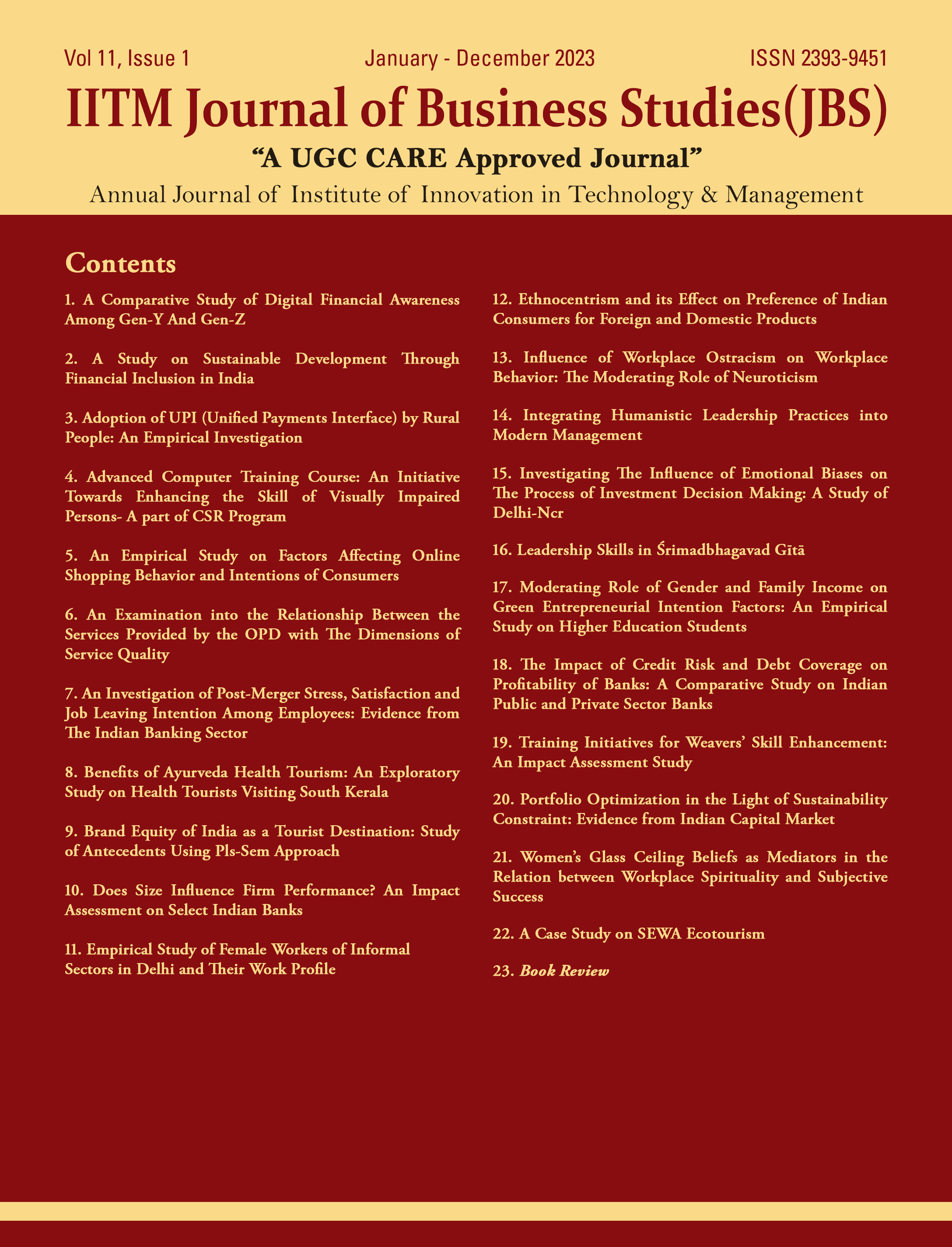A Study on AIS Quality in the use of the ERPS
Keywords:
ERPS capabilities, AIS quality, Decision Making Process Effectiveness, managerAbstract
The use of the Enterprise Resource Planning Systems (hereafter, ERPS) in India showed a significant growth. This growth has lead to the need to have an empirical evidence about the accounting benefits from using that systems. The existences of accounting research on ERPS has created an opportunity for further research on the Accounting Information Systems (AIS) quality and effectiveness in the decision making process related to the level of the use of the ERPS. This research is using alternative methods of Partial Least Square (PLS}. The result suggest that the manager's perceptions of the AIS quality affect the effectiveness of the decision making process. The breadth of the use of the ERPS can be a moderating factor in the relationship between manager's perception of the AIS quality and the effectiveness of the decision-making process. Finnally, there was no difference between the perceptions of the different department managers regarding the AIS quality and the effectiveness of the decision making process on the breadth of the use of the ERPS.
References
Alz:oubi A. (2011 ). The Effectiveness of the Accounting Information System Under the Enterprise Resource Planning (ERP): Study on Al Hassan Qualified Industrial Zone's (QIZ) Companies. Research Journal of Finance and Accounting. Vol 2 No.11.
Bahrami B., Jordan E. (2009). Impacts of Enterprise Resource Planning Implementation on Decision Making Processes In Australian Organisations. Pacific Asia Conference on Information Systems (PA CIS) 2009 Proceedings.
Brazel J.F. & Dang L. Oktober (2005). "The Effect of Enterprise Resource Planning (ERP) System Implementations on The Usefulness of Accounting Information". SSRN-id815190.
Carton F., Adam F. (2005). "Understanding the Impact of Enterprise System on management Decision making: An Agenda for Future Research". The Electronic Journal of information Systems Evaluation. Vol 8 lss 2 pp. 99-106.
Chang, H.H. (2006). "Technical and management perceptions of enterprise information system importance, implementation and benefits", Information systems journal Vol 16, pp. 263-292.
Chin W.W. (1998). "Issues and opinion on Structural Equation Modeling''. MIS Quarterly; Mar 1998; 22, l;pg. VII
Dehning B. & Richardson D.J. (2002). "Rerurns Oflnvestments In Information Technology: A Research Synthesis",Joumal of Information Systems, Vol. 16 (1):7-30.
Del.one W.H. & McLean E.R. (1992). "Information Systems Success: The Quest for the Dependent Variable". Information Systems Research, 3(1):60-90.
Doll W.J. & Torkzadeh G. June, (1988). 'The Measurement of End-user Computing Satisfaction''. MIS Quarterly, pp. 259 - 274.
Esteves, L. (2009). "A benefits realization road-map framework for ERP usage in small and medium-sized enterprises". Journal of Enterpriseinformation Management, Vol. 22 No. 1/2, pp/ 25-35.
Fornell, C. & Larcker, D. (1981). "Evaluating Structural Equation Models with Unobservable Variable and Measurement Error". journal of Marketing Research, 18. 39-50.

